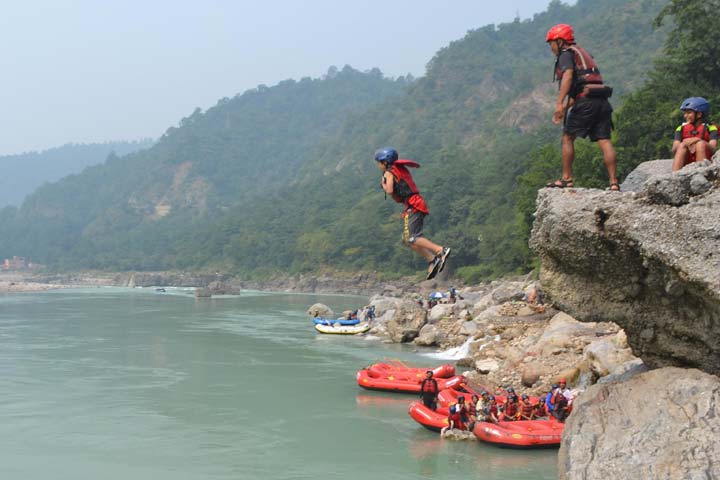
21 Oct Into the Breach
Woodstock Principal Dr Craig Cook explains how exposing students to new cultures, landscapes and experiences during Activity Week provides an opportunity for them to thrive.
Harold Garfinkel was a master of the socially awkward. A professor of sociology, he is known as the founder of ethnomethodology – the study of how people make sense of their everyday life. Garfinkel theorised that individuals use “background expectancies” to guide their reactions to any given social situation. This web of ‘rules’ govern our behaviour, but are often such a function of the subconscious that they are difficult for any individual to quantify in a meaningful way. But we’re all aware when these rules are broken, and we all, at least to some extent, penalise individuals for infraction, and reward others for compliance.
"What does the breaking of a routine do? It challenges us to look at ourselves, challenges our assumptions about life and how we’re living."
Garfinkel is known for constructing breaching experiments. These involve consciously undertaking unexpected actions to violate social norms, and observing the results. It may be as simple as saying “hello” rather than “goodbye” at the end of a conversation. It could be wearing swim-fins around campus or taking your Taco-Bell into a MacDonalds. The important thing is not so much the act in itself, but the reaction to it. You get knocked back. People think you’re rude, obnoxious, even mentally ill – they disengage with you. There are sanctions for breaching expectations, the building blocks on which social interaction is constructed. So why do it? Because you don’t discover the micro-structures in society until you breach them.
In a sense Activity Week is a breaching exercise – a rupture in the everyday school year. Students are thrown from a comfortable place into somewhere which could be completely alien to them, outside their cultural and social norms. What does the breaking of a routine do? It challenges us to look at ourselves, challenges our assumptions about life and how we’re living.
I will be joining our Grade 9 students next week, as they spend time living and learning in a local Garwhali village. They may not be aware of it, but what they’re actually participating in is place-based education. This takes them out of their usual educational environment, exposing them to new cultures, landscapes, opportunities and experiences. It also puts students in an ambiguous situation. It’s going to unfamiliar, uncomfortable, and uncharted – It basically stresses them out. What’s important from an educator’s point of view is how to use that stress in positive manner for our students.
"You could live a whole life without breaching your background expectations, or navigating uncomfortable places and situations. But in doing so you potentially leave whole regions of your capacity unexplored."
Really challenging our students about how they live every day is a big part of it. They’re in a place they’re unfamiliar with. Their social norms have been breached. They’ve got to figure it out. How do you deal with an ambiguous situation where you don’t know the rules?
Part of the answer is to let the ambiguity to do its work, let it produce its fruit. Some students will find the situation more stressful than others. Some will want to, metaphorically at least, run and hide. Others with jump right in and thrive. As with Garfinkel’s breaching experiments, you can never tell until you’ve trespassed beyond their social norms.
As educators, we’re not here to teach them the new rules. Rather, our role is to help guide them through it, to navigate the unfamiliar, and to provide a safety net if the stress gets too much. But it is being challenged that exposes many of the positive qualities we seek to elicit through Activity Week – initiative, self-discipline, leadership. You could live a whole life without breaching your background expectations, or navigating uncomfortable places and situations. But in doing so you potentially leave whole regions of your capacity unexplored. So as we depart for Activity Week, we should embrace the words of Shakespeare: “Once more unto the breach, dear friends, once more”.
Dr Craig Cook, Principal
This article was originally published in our weekly newsletter to parents prior to this year’s Activity Week.






No Comments